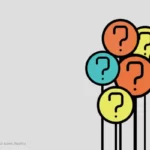
The process of education and socialization to which we are subjected since childhood passes through the inoculation of “duties”. Those duties are expressed in a myriad of ways, from positive socially accepted values to the obligations we incur. As a result, it is not surprising that our daily thinking and speech are full of “duties”.
Must has a double meaning. On the one hand, it implies “being obliged to the other” and on the other, “being obliged to something”. Therefore, it implies the recognition that we are obliged to do something because we owe it to others.
Must, in fact, is used as a modal verb that gives rise to commandments such as “you must strive”, “you must work” or “you must be good”. When we internalize these social commandments we combine duty and this becomes an internal command: “I must strive”, “I must work” or “I must be good”.
There is then a change from the interpsychological to the intrapsychological. Social pressure fades in favor of internal pressure. At that point, according to Friedrich Nietzsche, we become an automaton who got trapped in the nets of duty. And that is the most direct path to “decadence and stupidity”, according to the philosopher.
Embracing other people’s values leads to self-falsification
Being the cause of oneself, the only one responsible for one’s existence and one’s action: that is the idea that Nietzsche defended fiercely and the leitmotif of his work. Man as an active subject of his own life, who exercises maximum freedom and is able to free himself from the social commandments that prevent him from reaching his potential as a person.
Nietzsche fought against morality, at least the morality imposed by the different control systems. He believed in the existence of values and virtues that become compasses in our life, but only in those that are truly ours.
“A virtue must be our own creation, our most personal defense and a necessity; in any other case it is just a danger. Everything that does not represent a vital condition is harmful: a virtue dictated simply by a sense of respect for the idea of ‘virtue’ is harmful”, he wrote.
All those virtues that are not born from us, but have been imposed and respected without a process of reflection, can end up becoming an obligation and, therefore, can limit our potential by taking us to make decisions that do not help us grow but limit our intelligence.
Nietzsche was convinced that embracing social values without questioning them leads to the development of an enslaving morality. That is why we must ensure that we do not cross the fine limit that exists between the virtue that leads to overcoming and that which becomes a rigid rule that ends up paralyzing us.
In that sense, those virtues can be extremely damaging. Then the sublime commandment of “you must” leads to a “falsification of oneself”, as Nietzsche said.
The free spirit does not even tie to onself
Nietzsche also advocated for developing contextualized and pragmatic virtues and values. He did not believe that abstract virtues could bring anything valuable to our personal development.
He thought that when “’virtue’, ‘duty’ and ‘good in itself’ acquire an impersonal and universal character, they become ghosts.” He stated that “People perishes when they confuse personal duty with the concept of duty in general.” That duty turns sacrifice into an abstraction. Then sacrifice or any other value or action becomes vain, meaningless.
As an antidote, he proposed that “each person discover his virtue by himself”, because this must be the result of a “deep personal decision”. To do this, we must first perform an exercise of introspection that involves recognizing and accepting the shadows and lights that inhabit us, so that we can unify our impulses and desires. Only then we can develop personal values that are not in continuous conflict with our essence.
Finding these values also implies facing the past without resentment and even recreating it by changing its meaning, but always taking into account the perspective character: “All meaning is provisional creation without guarantees or securities and all creation responsibility and risk without final judgment”, as wrote the philosopher. That means both accepting our past “self” and the uncertainty of the future.
That Nietzschean vision turns us into free spirits. Mature people who are not enslaved by their past and do not fear the future. However, even at that point we cannot let our guard down because we can always get caught in the web of the values we build. “Let us take care that it does not become our vanity, our adornment and gala dress, our limitation, our stupidity”, Nietzsche warned.
The free spirit is, therefore, the one who strives to cultivate his own virtue in harmony with his nature. But he is also the one who manages to free himself. Therefore, he is a person aware that everything is constantly changing. Including its values and virtues.
Sources:
Nietzsche, F. (2011) El anticristo. Losada: Buenos Aires.
Nietzsche, F. (2012) Más allá del bien y del mal. Alianza Editorial: Madrid.



